Ray Charles
Ray Charles
Ray Charles Robinson Sr. (September 23, 1930 – June 10, 2004) was a highly esteemed American vocalist, composer, and pianist. Recognized as one of the most iconic and influential musicians in history, his contemporaries often referred to him as "The Genius," while Charles himself preferred the affectionate address of "Brother Ray" among friends and fellow musicians. His journey in music faced a unique challenge, as Charles lost his sight during childhood, likely due to glaucoma.
In the 1950s, Charles revolutionized the music scene by pioneering the soul music genre. His distinctive style seamlessly blended elements of blues, jazz, rhythm and blues, and gospel in the recordings he produced for Atlantic Records. The 1960s witnessed Charles contributing to the integration of country, rhythm and blues, and pop music with his crossover success on ABC Records, notably through his two acclaimed Modern Sounds albums. During his time with ABC, Charles made history as one of the first black musicians to be granted artistic control by a mainstream record company.
Notable milestones in Charles's illustrious career include the 1960 hit "Georgia on My Mind," marking the first of his three career No. 1 hits on the Billboard Hot 100. His 1962 album Modern Sounds in Country and Western Music achieved the remarkable feat of becoming his first album to top the Billboard 200. Charles left an indelible mark on various Billboard charts with multiple singles reaching the Top 40.
Charles drew inspiration from Nat King Cole, with influences also extending to the likes of Louis Jordan and Charles Brown. His lifelong friendship and occasional collaboration with Quincy Jones added another layer of depth to his musical journey. Frank Sinatra went as far as calling Ray Charles "the only true genius in show business," although Charles himself modestly downplayed such notions. Billy Joel expressed a sentiment of admiration, stating, "This may sound like sacrilege, but I think Ray Charles was more important than Elvis Presley."
In recognition of his immense musical contributions, Charles received numerous accolades, including the Kennedy Center Honors, the National Medal of Arts, and the Polar Music Prize. He was among the inaugural inductees at the Rock and Roll Hall of Fame in 1986.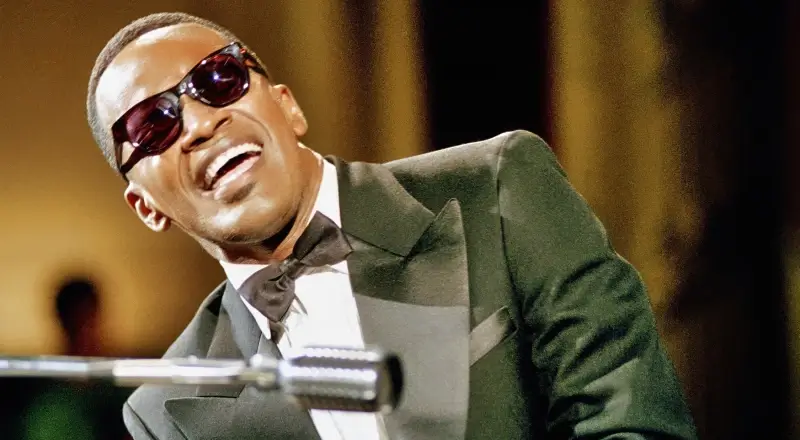
Charles earned 18 Grammy Awards, with five awarded posthumously. The Grammy Lifetime Achievement Award came in 1987, and 10 of his recordings were inducted into the Grammy Hall of Fame. Rolling Stone honored him by ranking Charles No. 10 on their list of the 100 Greatest Artists of All Time and No. 2 on their list of the 100 Greatest Singers of All Time. In 2022, he was posthumously inducted into the Country Music Hall of Fame and the Black Music & Entertainment Walk of Fame.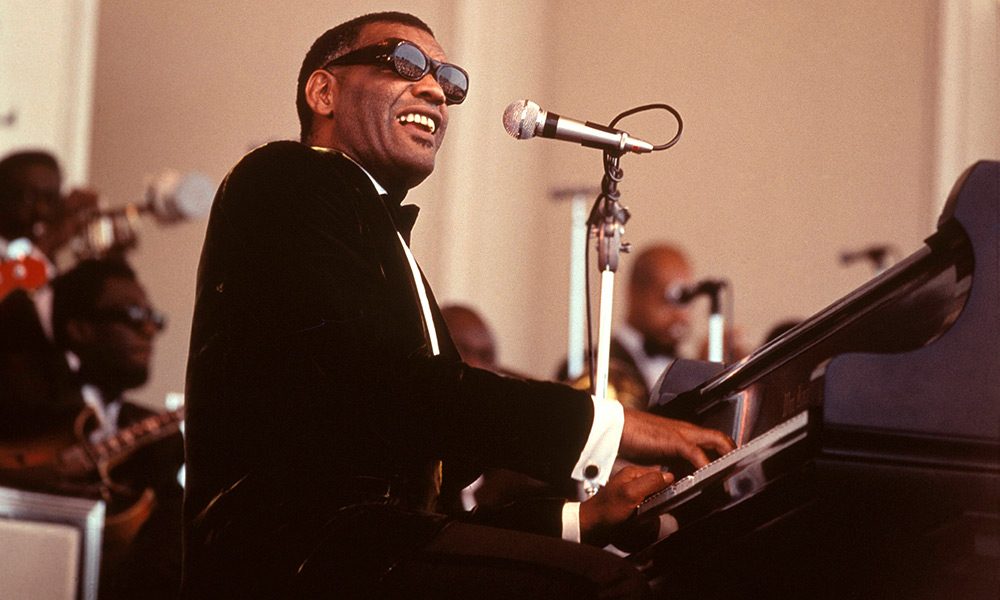
Born on September 23, 1930, in Albany, Georgia, Ray Charles Robinson Sr. had humble beginnings as the son of Bailey Robinson, a laborer, and Aretha Robinson (née Williams), a laundress from Greenville, Florida.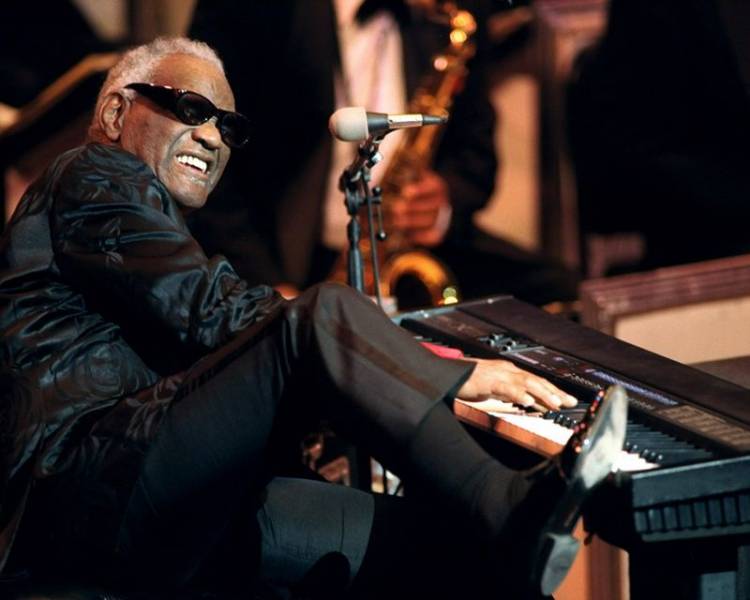
Aretha faced early challenges as her mother passed away during her childhood, leading to her adoption by the Robinson family—Bailey, his wife Mary Jane, and his mother—who informally took her in, and Aretha adopted the Robinson surname. A scandal ensued when Aretha became pregnant by Bailey, and she left Greenville in 1930 to be with family in Albany. After Ray Charles was born, they returned to Greenville, and Aretha, along with Bailey's wife, shared in Charles's upbringing. The father abandoned the family, leaving Greenville and marrying someone else. By Charles's first birthday, he had a brother, George.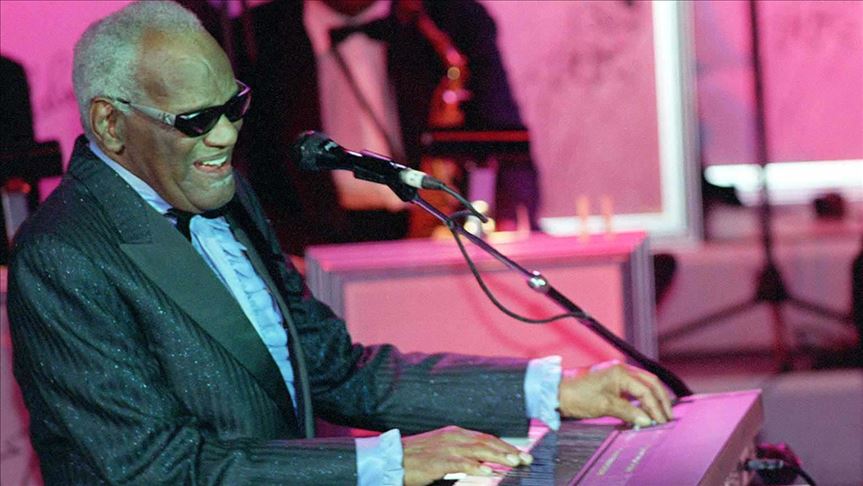
Despite adversity, Charles developed a deep connection with his mother, cherishing her perseverance, self-sufficiency, and pride as guiding lights in his life. In his early years, Charles displayed an interest in mechanical objects and developed a musical curiosity at Wylie Pitman's Red Wing Cafe, where he learned to play the piano from Pitman.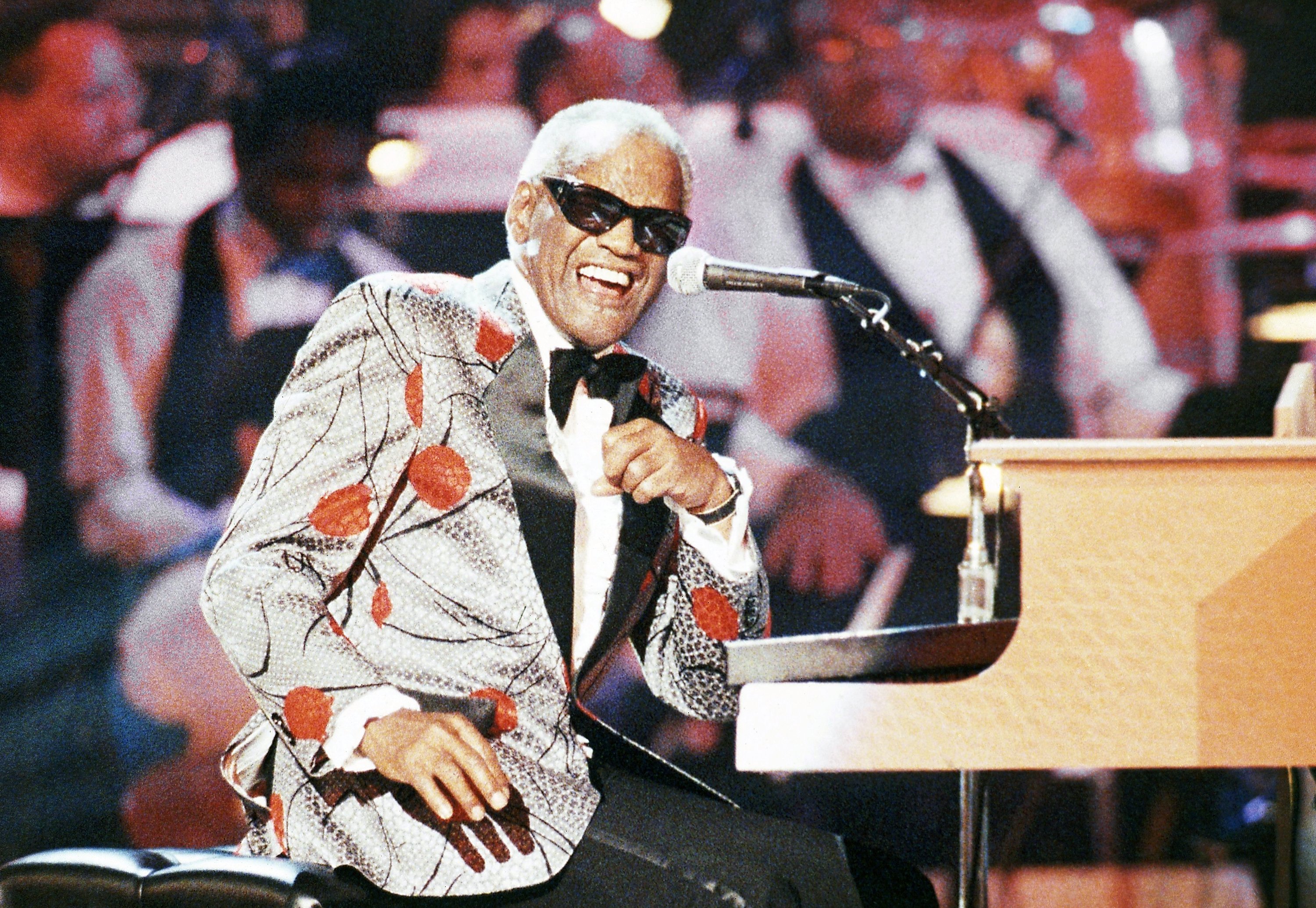
Tragedy struck when Charles started to lose his sight at the age of four or five, ultimately becoming blind by seven, likely due to glaucoma. Aretha, mourning the loss of her younger son George, used her community connections to find a school that would accept a blind African-American pupil. Despite initial protests, Charles attended the Florida School for the Deaf and the Blind in St. Augustine from 1937 to 1945.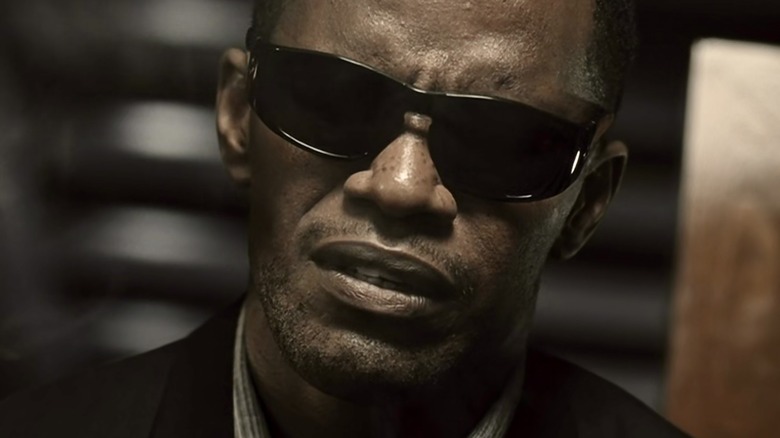
During his time at the school, Charles honed his musical talents and learned classical piano music from Bach, Mozart, and Beethoven. His teacher, Mrs. Lawrence, taught him braille music, a complex process involving reading braille with one hand to learn left hand movements and vice versa. Charles's mother passed away in 1945 when he was 14, marking a profound loss in his life. The deaths of his brother and mother were described by Charles as "the two great tragedies" of his life, leading him to decide not to return to school after his mother's funeral.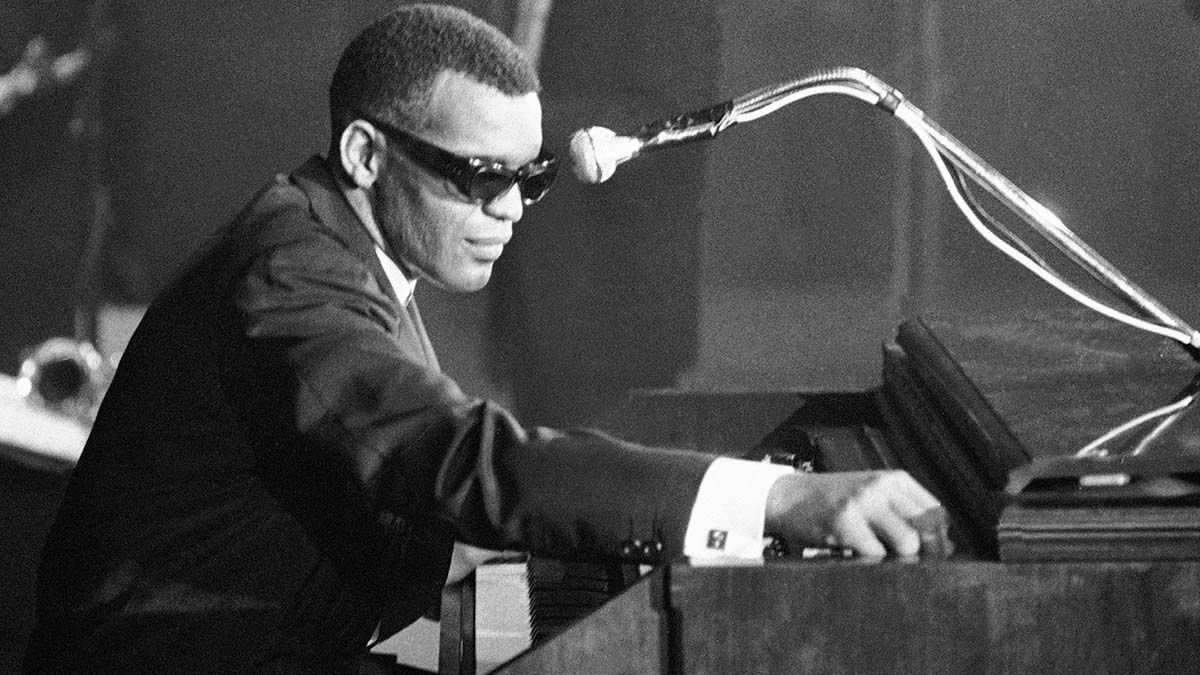
Between 1945 and 1952, Ray Charles navigated a journey through Florida, Los Angeles, and Seattle, shaping the early years of his remarkable musical career. After leaving school, he moved to Jacksonville, residing with Charles Wayne Powell, a friend of his late mother. Playing the piano for bands at the Ritz Theatre in LaVilla, Charles earned a modest income and joined the American Federation of Musicians to enhance his chances of finding work. Living in borderline poverty in Orlando, he struggled to establish a strong musical identity. At 16, Charles ventured to Orlando, facing hardship and hunger for days. He began writing arrangements for a pop music band and attempted to join Lucky Millinder's sixteen-piece band, an effort that ended in disappointment. Charles then relocated to Tampa, working two jobs, including one as a pianist for Charles Brantley's Honey Dippers.
At 16, Charles ventured to Orlando, facing hardship and hunger for days. He began writing arrangements for a pop music band and attempted to join Lucky Millinder's sixteen-piece band, an effort that ended in disappointment. Charles then relocated to Tampa, working two jobs, including one as a pianist for Charles Brantley's Honey Dippers.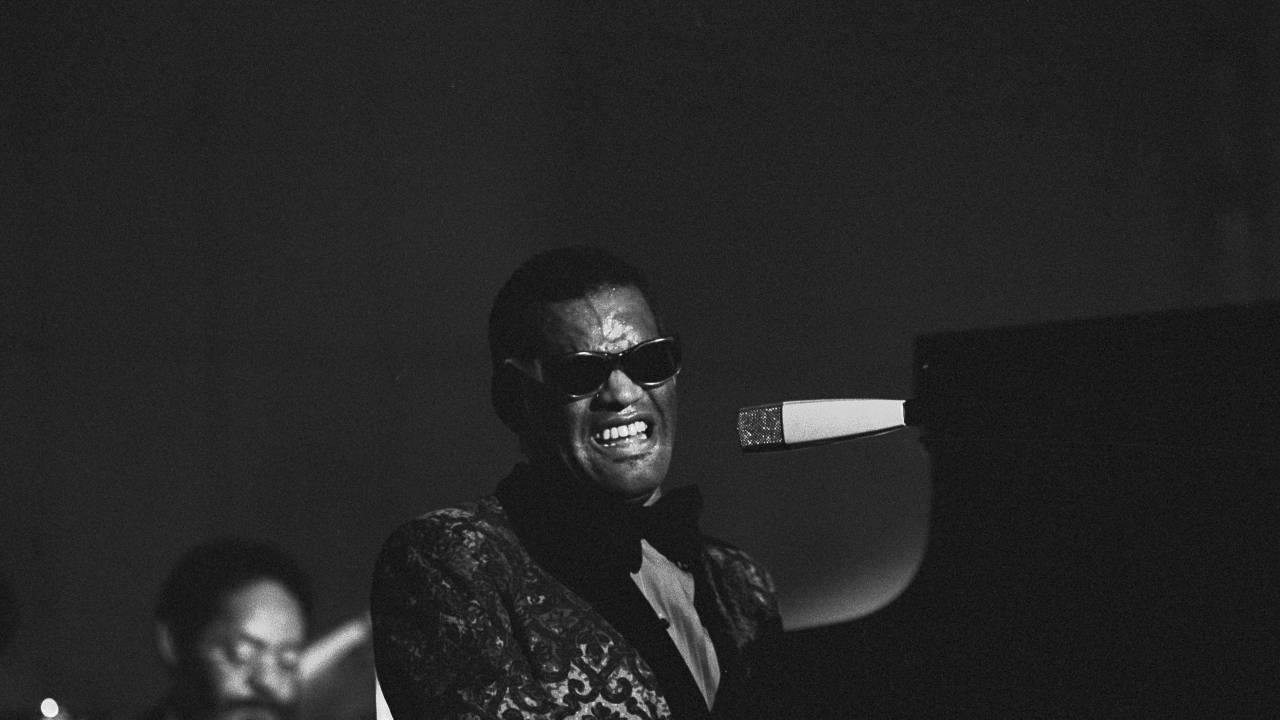
In the early stages of his career, Charles modeled himself after Nat King Cole and recorded his first four songs, allegedly in Tampa. Seeking a broader audience, he left for Seattle in March 1948, where he formed The McSon Trio with Gossie McKee and Milton Garred. The trio played the late-night shift at the Rocking Chair, and their recordings, including "Confession Blues," marked Charles's initial success on the national stage, reaching the second spot on the Billboard R&B chart.
In 1950, Charles moved to Los Angeles and toured with blues musician Lowell Fulson as musical director. During his time in Miami, Henry Stone noticed Charles's talent, leading to a Ray Charles Rockin' record. Subsequently, Jerry Wexler found Charles in St. Petersburg with Stone's assistance. After signing with Swing Time Records, Charles produced two R&B hits: "Baby, Let Me Hold Your Hand" (1951) and "Kissa Me Baby" (1952). Swing Time folded, and Charles transitioned to Atlantic Records, marking a pivotal moment in his career. Beyond being a musician, Charles also took on the role of a record producer, contributing to Guitar Slim's hit, "The Things That I Used to Do."

References
- Morrison, Van. "100 Greatest Artists of All Time. No. 10: Ray Charles". Rolling Stone. No. 946. Archived from the original on October 19, 2012. Retrieved June 13, 2010.
- ^ Jump up to:
- a b c d "Ray Charles, American Legend, Dies at 73". NPR.org. June 11, 2004. Retrieved September 25, 2014.
- ^ Jump up to:
- a b Unterberger, Richie. "Ray Charles". AllMusic. Retrieved December 20, 2019.
- ^ Jump up to:
- a b Hoye, Jacob, ed. (2003). 100 Greatest Albums. Simon and Schuster. p. 210. ISBN 978-0-7434-4876-5.
- ^ "Show 15: The Soul Reformation". digital.library.unt.edu. Retrieved December 15, 2018.
- ^ Palmer, Robert (February 9, 1978). "Soul Survivor Ray Charles". Rolling Stone. No. 258. pp. 10–14. Archived from the original on March 1, 2010. Retrieved November 9, 2008.











































